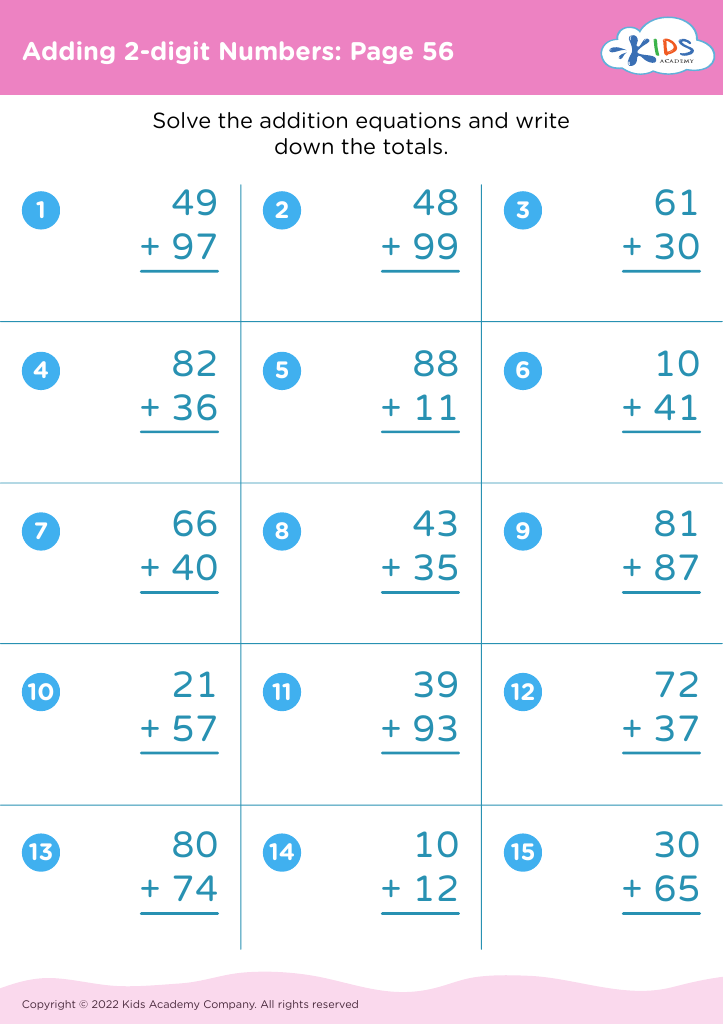Boost critical thinking Addition & Subtraction Worksheets for Ages 6-7
3 filtered results
-
From - To
Enhance your child's critical thinking skills with our engaging Addition and Subtraction Worksheets designed specifically for ages 6-7. These worksheets focus on problem-solving strategies, encouraging young learners to think independently and analytically. As they tackle various math challenges, children develop essential skills such as logical reasoning and perseverance. Each worksheet is crafted to be age-appropriate and stimulates creative thinking through fun exercises and real-life scenarios. Perfect for reinforcing classroom learning, this resource empowers students to gain confidence in their math abilities while fostering a love for problem-solving. Explore our worksheets today and watch your child’s critical thinking flourish!
Parents and teachers should care about fostering critical thinking skills in addition and subtraction for children aged 6-7 because these skills are foundational for their overall cognitive development and future academic success. At this stage, children are not only learning basic arithmetic but also developing essential problem-solving abilities and reasoning skills.
Boosting critical thinking in mathematics encourages children to understand concepts deeply rather than simply memorizing facts or procedures. When children learn to approach addition and subtraction with critical thinking, they explore different ways to solve problems, identify patterns, and draw connections between mathematical concepts and real-life scenarios. This enhances their ability to think independently, make decisions, and articulate their reasoning clearly.
Additionally, engaging in critical thinking activities helps students build resilience and a growth mindset, understanding that mistakes are a part of the learning process. Armed with these skills, children become more confident and proficient in their mathematical abilities, setting a strong foundation for more complex subjects in later years. Therefore, encouraging critical thinking in early mathematics is essential for nurturing well-rounded learners who can excel in various aspects of their education and in life.






















